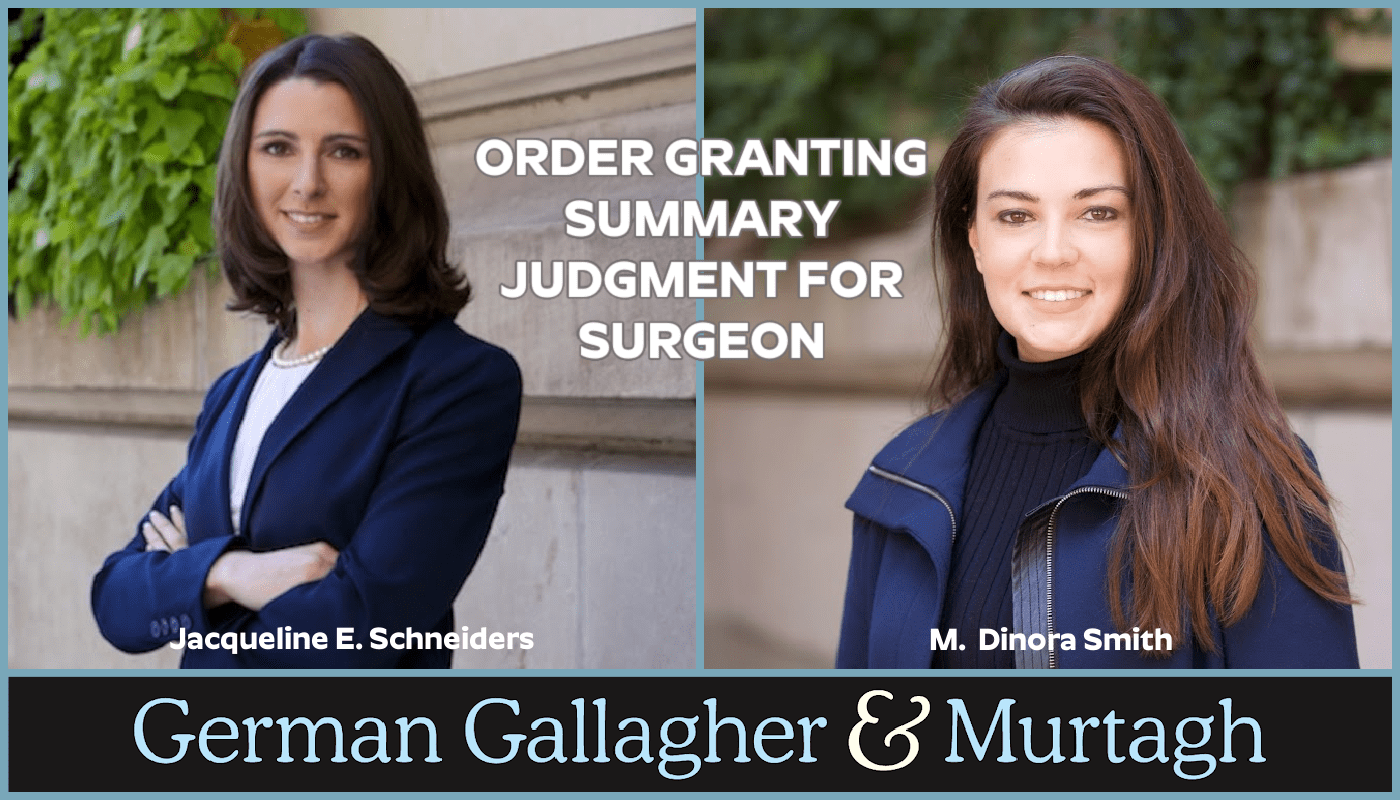Jacqueline E. Schneiders and M. Dinora Smith Defend Order Granting Summary Judgment for Surgeon
Jacqueline E. Schneiders and M. Dinora Smith defended an Order granting summary judgment for a surgeon in a medical malpractice action filed in the NJ Superior Court in Camden County, New Jersey. Plaintiff moved to reconsider the Order, arguing the trial court erred in holding that Plaintiff failed to establish any deviation in the standard of care. Specifically, Plaintiff argued that her expert’s testimony that the standard of care was breached in not operating when CT findings required emergency surgery created a question of material fact. Also, Plaintiff argued that the trial court improperly applied a heightened burden of proof than required by New Jersey law.
Schneiders and Smith argued that the trial court properly granted summary judgment after spending 40 minutes reviewing Plaintiff’s expert reports during oral argument. Additionally, the trial court did not apply a new or heightened standard; it merely exercised appropriate judicial discretion in limiting Plaintiff’s experts to the opinions in their reports. Here, Plaintiff’s experts asserted an opinion against all physicians on the surgical team, even though the physicians treated the decedent on different days and at different stages of her condition. Plaintiff’s experts not only failed to specify how the defendant surgeon deviated from the standard of care, but also the care provided by the moving defendant surgeon aligned with the standard of care defined by Plaintiff’s experts. The trial court denied reconsideration of the Order granting summary judgment.
Thereafter, Plaintiff moved for leave to appeal the Order denying reconsideration in the NJ Superior Court – Appellate Division. Plaintiff argued leave to appeal should be granted as the trial court improperly usurped the role of the jury and placed a burden on plaintiff that does not exist in dismissing her claims against the defendant surgeon. Plaintiff further argued that interlocutory appeal was required to prevent a grave injustice as this case involved multiple defendants in a complex medical malpractice case with a pending trial date. Not addressing the purported error now could require the case having to be tried twice, which was unfair to the parties and a waste of judicial time and resources.
Schneiders and Smith argued that the motion should be denied as premature. Permitting Plaintiff to appeal was directly against the public interest and policy in New Jersey. “[A]ppeals prior to and during trial waste the time and resources of the parties. A system allowing frequent appeals before or during trial in many cases would result in the separate adjudication of each issue by the trial court and the Appellate Division.” Moon v. Warren Haven Nursing Home, 182 N.J. 507, 513, 867 A.2d 1174 (2005). Also, they argued the motion should be denied, because the trial court properly determined that Plaintiff failed to provide sufficient expert opinions to establish a prima facie case. The NJ Superior Court – Appellate Division agreed and denied Plaintiff leave to pursue an interlocutory appeal.



